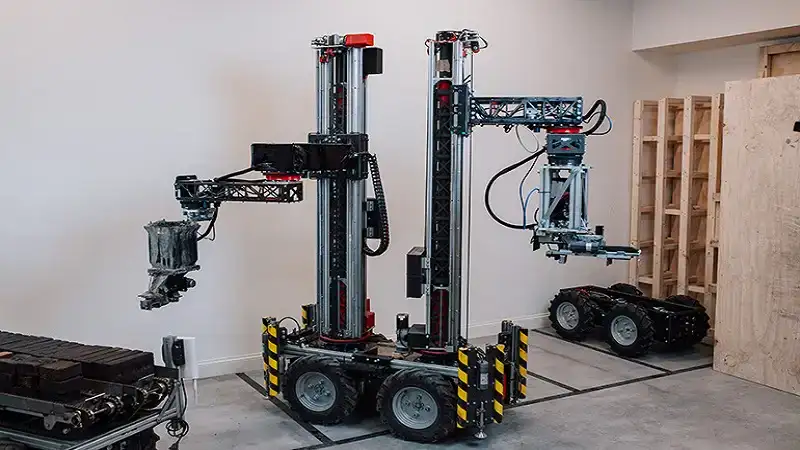Quantum computing is rapidly evolving, transforming industries and redefining the boundaries of what’s possible in technology. At the forefront of this revolution are Experts Qubitsgent Ieeespectrum who delve into the intricate world of qubits—the fundamental units of quantum information. Publications like IEEE Spectrum play a pivotal role in disseminating knowledge about these advancements. In this article, we’ll explore the key concepts of qubits, the role of experts in quantum computing, and how platforms like IEEE Spectrum contribute to the understanding of this fascinating field.
The Experts Qubitsgent Ieeespectrum Landscape
What is Quantum Computing?
Quantum computing harnesses the principles of quantum mechanics to process information in ways that classical computers cannot. Unlike classical bits, which can be either 0 or 1, qubits can exist in multiple states simultaneously thanks to a phenomenon called superposition. This allows quantum computers to perform complex calculations at unprecedented speeds.
The Significance of Qubits
Qubits are the building blocks of quantum computing. They enable quantum computers to perform many calculations at once, significantly enhancing computational power. The ability of qubits to entangle, or correlate with one another regardless of distance, further amplifies this power. This entanglement is a critical property that experts in the field are continuously exploring to improve quantum algorithms and applications.
The Role of Experts Qubitsgent Ieeespectrum
Experts in quantum computing come from various backgrounds, including physics, computer science, engineering, and mathematics. These professionals are essential for several reasons:
- Research and Development: They drive innovation, exploring new materials and methods for building qubits, improving coherence times, and enhancing error correction.
- Algorithm Design: Experts develop quantum algorithms that leverage the unique properties of qubits to solve problems that classical computers struggle with, such as factorizing large numbers or simulating quantum systems.
- Interdisciplinary Collaboration: Quantum computing requires a blend of knowledge from various disciplines. Experts collaborate across fields to advance the technology.
- Education and Outreach: Many experts contribute to the education of the next generation of quantum scientists, demystifying complex concepts and promoting public understanding.
The Importance of Experts Qubitsgent Ieeespectrum Spectrum
What is IEEE Spectrum?
IEEE Spectrum is a leading magazine that covers a wide range of topics related to engineering, technology and applied sciences. It is published by the Institute of Electrical and Electronics Engineers (IEEE), an organization that supports technological innovation and excellence.
Contributions to Quantum Computing Knowledge
- Expert Articles: IEEE Spectrum publishes articles written by industry leaders and researchers, providing insights into the latest developments in quantum computing. These articles often break down complex concepts into more digestible formats, making them accessible to a broader audience.
- Research Summaries: The magazine often summarizes cutting-edge research, helping to highlight breakthroughs in quantum technology, such as advances in qubit coherence and error correction techniques.
- Interviews with Experts: Featuring interviews with leading experts in the field allows readers to gain perspectives on current challenges and future directions of quantum computing.
- Event Coverage: IEEE Spectrum covers major conferences and workshops, ensuring that the community stays informed about trends and discussions shaping the future of quantum computing. Experts Qubitsgent Ieeespectrum
The Journey of Qubits
Types of Qubits
There are several types of qubits, each with its advantages and challenges:
- Superconducting Qubits: Made from superconducting circuits, these qubits are widely used by companies like IBM and Google. They are relatively easy to manipulate and have shown promise for scalability.
- Trapped Ion Qubits: These qubits are ions confined in electromagnetic fields. They have long coherence times and high fidelity but face challenges in scaling.
- Topological Qubits: Still largely theoretical, these qubits promise greater stability and error resistance. They are being researched by Microsoft and other organizations.
- Photonic Qubits: Using photons, these qubits can be manipulated with light. They are promising for quantum communication due to their high-speed transmission capabilities.
Challenges Facing Qubit Development
Despite their potential, qubits face several challenges:
- Decoherence: Qubits are highly sensitive to their environment, and external interference can lead to loss of information. Maintaining coherence for longer periods is a critical area of research.
- Error Rates: Current quantum computers have higher error rates than their classical counterparts. Developing effective quantum error correction methods is vital for practical applications.
- Scalability: Building a large-scale quantum computer involves integrating millions of qubits while maintaining their control. This remains a significant hurdle.
Real-World Applications of Quantum Computing
As experts continue to push the boundaries of quantum technology, numerous applications are beginning to emerge:
1. Cryptography
Quantum computing has the potential to revolutionize cryptography. Quantum algorithms, like Shor’s algorithm, can factor large numbers exponentially faster than classical algorithms, posing a threat to current encryption methods. However, quantum key distribution offers a way to create unbreakable encryption, laying the groundwork for secure communication.
2. Drug Discovery
Pharmaceutical companies are exploring quantum computing for drug discovery. Quantum simulations can model molecular interactions in unprecedented detail, significantly reducing the time required to identify promising compounds.
3. Optimization Problems
Many industries face complex optimization problems, from logistics to finance. Quantum computing can analyze numerous variables simultaneously, potentially offering solutions that are currently infeasible for classical computers.
4. Artificial Intelligence
Combining quantum computing with AI could lead to breakthroughs in machine learning algorithms, enabling faster data processing and improved predictive models. Experts Qubitsgent Ieeespectrum
The Future of Quantum Computing
The future of quantum computing is both exciting and uncertain. As experts continue to tackle the challenges facing qubits and quantum systems, we can expect:
- Increased Collaboration: The complexity of quantum computing will drive collaboration across disciplines, leading to innovative solutions and applications.
- Commercialization: Companies are already beginning to offer quantum computing as a service, allowing businesses to access quantum capabilities without needing in-house expertise.
- Standardization: As the field matures, standards for qubit systems and quantum programming languages will likely emerge, making it easier for developers to create quantum applications.
- Ethical Considerations: As with any transformative technology, ethical considerations surrounding quantum computing will need to be addressed, particularly in areas like privacy and security. Experts Qubitsgent Ieeespectrum
Conclusion
Experts Qubitsgent Ieeespectrum computing is poised to reshape our technological landscape, driven by the expertise of individuals dedicated to understanding and harnessing the power of qubits. Publications like IEEE Spectrum play an essential role in making this complex field accessible and engaging, informing both professionals and the public alike.
As we look to the future, the combination of innovative research, interdisciplinary collaboration, and effective communication will be critical in unlocking the full potential of quantum computing. Whether it’s through breakthroughs in cryptography, drug discovery, or optimization, the journey of qubits is just beginning—and the experts leading the charge will continue to illuminate the path forward.




